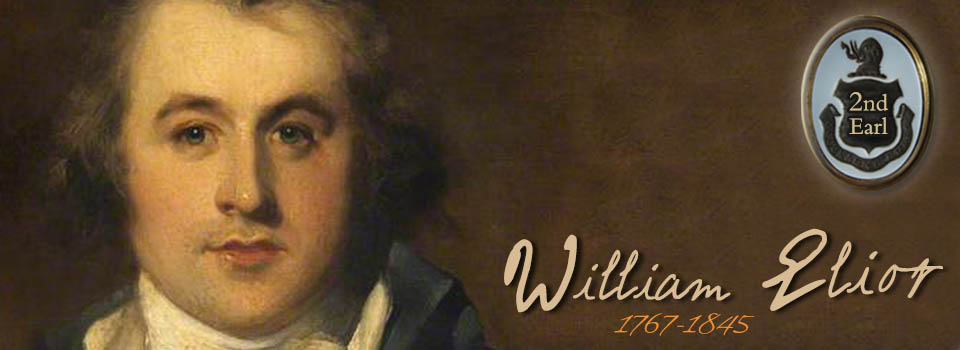08 Jul 1806: Letter Extract (Wm. Eliot to Charlotte, Duchess of Beaufort)
I will not delay any longer, My Dear Duchess, answering your letter, because I find it rather difficult to express myself touching one of the questions in it. I am sincerely pleased to hear that [name crossed out] gave way to some serious thoughts in the conversation you had with them. May they occur again and again, till it shall please God to make them effectual. If you could learn the means of his being awakened, Glorious will be your reward.
So far from suffering pain from having these awful scenes which Madeira recalled to my recollections, there is nothing which is not now a source of such high gratification to me. There are times when the remembrance of what once was, and is gone forever, lies heavily upon my heart; but, if I can connect what is past with the closing scene of her existence on earth and bring a lively image of all these circumstances before my imagination, there ends all the anguish, and I feel it depends only on myself to profess in a few years all my former happiness infinitely increased, both in duration and quality. I know not that I ever experienced more delight than hearing the other day the song in the Messiah, "O Death where is thy sting?" They were nearly the last words I heard her speak. The music overpowered me, and I was obliged to leave the company, but I would have given anything to have remained.
My opinion respecting Leighton calling himself unworthy is that he felt that his own opportunities, his gifts, his blessings, the force of God's grace within him, were all bestowed with a most liberal hand upon him, and that his own endeavours, at least his own attainments, were not proportional to them. This would of course make him dwell upon the sinfulness of his heart and lament it in strong language. It does not, however, appear that his hopes of salvation were weak but only that he thought he ought to have made much more of the talents that were given him to augment. I apprehended that this comparative view of gifts received, with the account they have been turned to, is common to all persons of humble piety.
Ever your most truly affectionate Brother.

